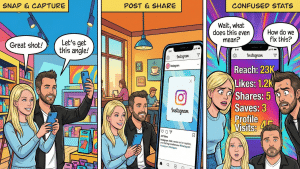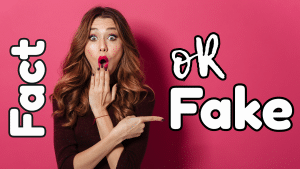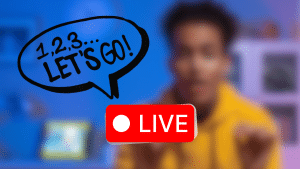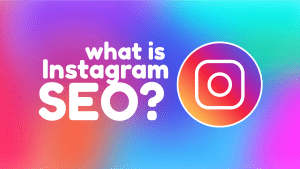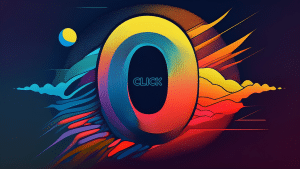
Is Meta Verified for Business Pages Worth It?
Meta introduced Meta Verified for Business Pages in September 2023. As businesses scramble to understand the necessity and value of this new feature, it’s essential to take a closer look at these tiers. Is this just another “pay-to-play” tactic for Facebook? In this article I’ll break down what each tier includes and share some more insights about what to be thinking about when new features like these become available.
What Is Meta Verified for Business Pages?
Meta Verified offers businesses four tiers of subscription plans, ranging from $15/month to $500/month, each promising better visibility, credibility, and features. Here’s a quick breakdown:
- Tier 1 ($15/month): Includes the verified badge, impersonation protection, Meta support, an enhanced profile that allows you to add images to your links, and search optimization that pushes you near the top of searches.
- Tier 2 ($50/month): Includes everything in Tier 1, prioritized customer support, enhanced profile with the ability to share three business addresses and showcase three of your profiles. Plus, you get two links in Reels per month.
- Tier 3 ($150/month): Everything in Tier 1 & 2, with the ability to share five business addresses and profiles on the enhanced profile, more opportunities to be featured in the recommended feed, share up to four links per month in your Reels and employee impersonation protection for up to two employees.
- Tier 4 ($500/month): All benefits from Tiers 1, 2 & 3, plus you can request a call from a Meta agent with active case monitoring. The ability to share up to eight business addresses and showcase eight of your other profiles. Become most featured in the recommended feature feed, share up to six monthly links on your Reels, and get employee impersonation for up to five employees. You also get customized messaging chat, which is basically changing the messenger and IG chat theme colors, and semi-annual access to an advisor who will provide guidance to improve your content strategy.
The Good
Increased Visibility:
- Features like search optimization and recommendations promise better placement, increasing the likelihood of being seen by your target audience.
Verified Credibility:
- A verified badge can build trust, signaling authenticity to potential followers and customers.
Customizable Features:
- Enhanced profiles and the ability to add links in Reels offer businesses new ways to showcase their services and drive traffic.
Support Access:
- Prioritized customer support may help resolve issues faster, addressing a long-standing frustration with Meta’s responsiveness.
The Bad
High Costs with Limited ROI:
- Many features, such as link customization, can be achieved through more affordable tools like Linktree or WordPress.
Uncertain Value of Recommendations:
- Will featured accounts function like Google Sponsored Ads, where click-through rates are lower than organic content? Research suggests users often skip sponsored content, raising concerns about trust and effectiveness.
Lack of Alignment for Organizations:
- Meta’s recent ad targeting changes, including the removal of options for religious practices, have made it harder for faith-based organizations to connect with their audiences.
Reputation Issues:
- Meta’s historical lack of responsiveness to support requests could make paying a premium for customer service a tough sell.
Good vs. Bad: Is the Pay-to-Play Model Sustainable?
The concept of paying to gain visibility on social media is nothing new. Since Facebook’s significant News Feed algorithm update in January 2018, how social media works has changed. Facebook made the announcement to prioritize content from friends, family, and groups over businesses. Ever since that change businesses have found it increasingly challenging to achieve organic reach. Meta Verified for Business Pages seems like another take on the pay-to-play model. While some benefits may be appealing, the sustainability of the pay-to-play model depends on how well it aligns with your goals and provides tangible results. The rising costs and uncertain ROI can make it challenging long-term strategy, particularly for businesses or organizations with limited budgets.
Will Featured Accounts Mimic Google Sponsored Ads?
It’s no surprise that many people don’t click the top sponsored ads, as they are often seen as less trustworthy than organic search results.
The click-through rate (CTR) for sponsored ads on Google versus organic listings varies significantly. On average, Google Ads have a click-through rate of around 3-5%, depending on the industry. Some industries, such as Arts & Entertainment, see higher CTRs, averaging around 11.78%
(WordStream) (Search Engine Journal)
In contrast, the first organic search result on Google typically has a CTR of about 28.5%, significantly higher than sponsored ads. The second and third organic positions see CTRs of around 15% and 11%, respectively.
(First Page Sage) (First Page Sage)
This indicates that users are generally more likely to click on organic listings than paid ads, especially for the top-ranking organic results.
This is just another reason why KillerB is taking a different approach. We believe in crafting marketing strategies that create meaningful connections, transforming digital interactions into opportunities to impact more lives, embodying our principle “We Don’t Buy Attention. We Earn It.”
Reflection and Action
Before deciding whether to invest in Meta Verified, ask yourself:
- Do I control my digital assets? Focus on assets like your website, blog content, email list, and text messaging services. These channels provide a level of control that social platforms can’t match.
- Will this investment align with my goals? Consider whether the features offered truly advance your mission or if they’re more about following the latest trend.
- How am I measuring success? Are you prioritizing meaningful engagement, or are you chasing vanity metrics like reach and impressions? Sometimes less reach but deeper connections can have a greater impact.
Conclusion: Should You Buy the Blue Badge?
As tempting as it may be to jump on the Meta Verified bandwagon, it’s essential to weigh the costs and benefits carefully. For many businesses, an organic approach may yield better long-term results. The answer to the Blue Badge question ultimately comes down to your personal needs and goals.
Social media is a great tool for connection, but remember, it’s not the only tool. The place to be today, may not be the place to be tomorrow. There are so many ways to connect with your audience today across digital. It’s ok to ask, “is social media the most effective approach?” Whether you’re considering paid or organic strategies. Remember Facebook changed the rules, which changed everything, and they continue to do so today. Don’t be fearful of making your own change too. In the digital world, change is inevitable. Yes, social media is a good tool to connect with people to build community, but have a plan to get them off those platforms and to digital assets you own. If you need help creating that plan, let’s connect on a discovery call, we can help you do just that! The real power lies in building relationships on platforms you own and control. In the digital world, change is inevitable, and being adaptable is key. Before investing in Meta Verified, ensure your foundational digital strategy is strong.
This article is grounded in our own experiences, reflections, and insights. AI tools were used to assist with writing and refined by a real human.
ℹ️ Please keep the comments free of promotions or sales pitches. Any comments containing such content may be marked as spam or edited before publishing.

